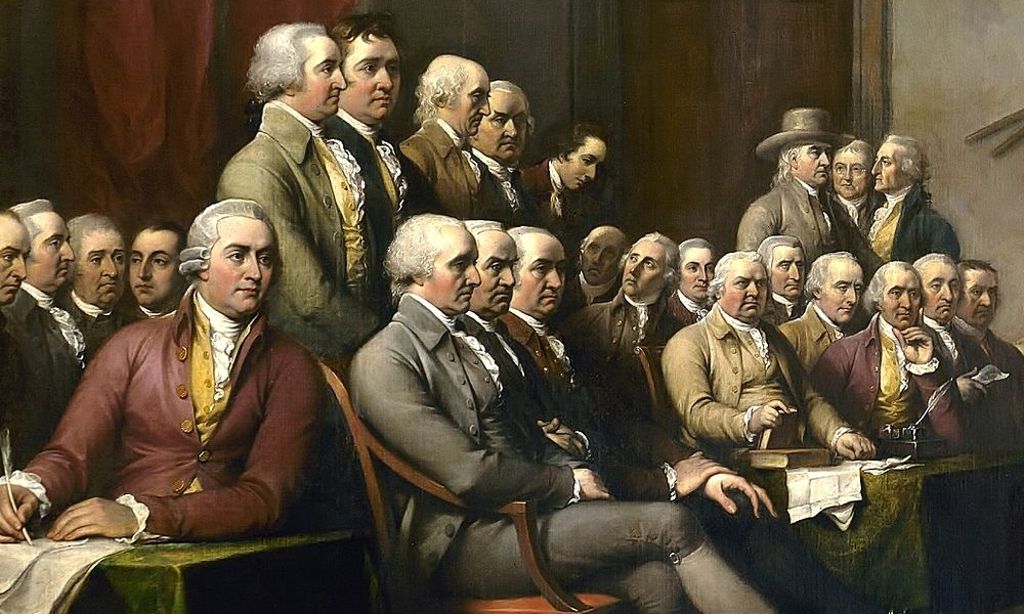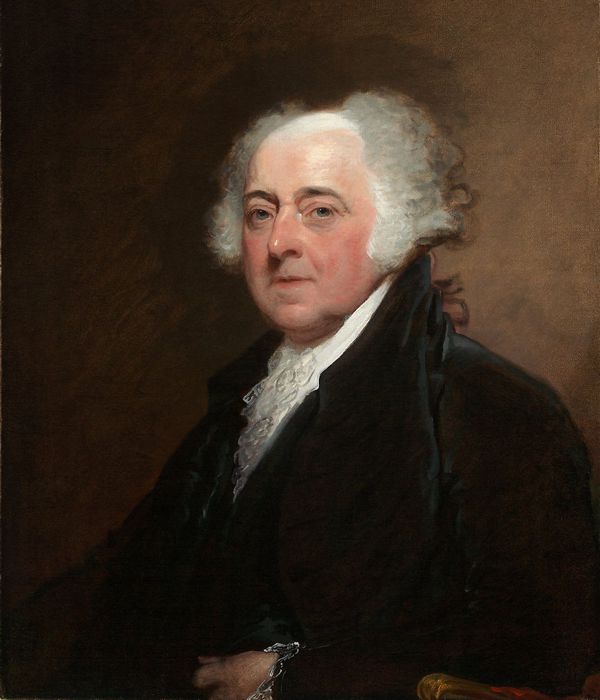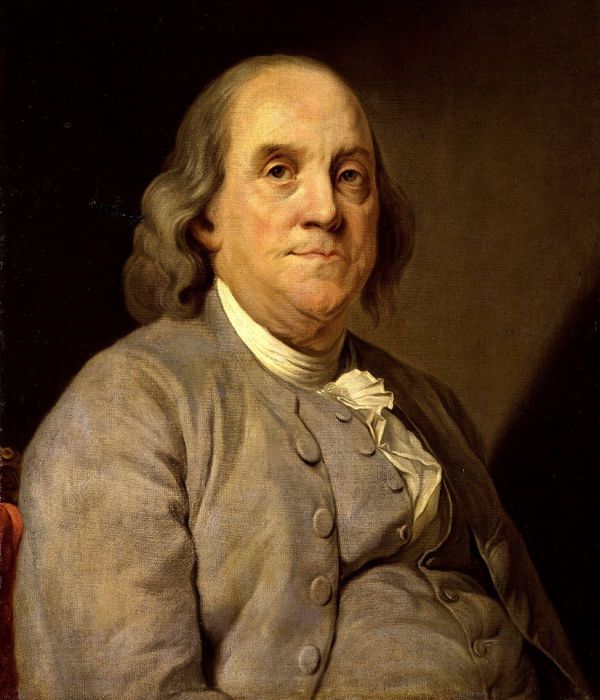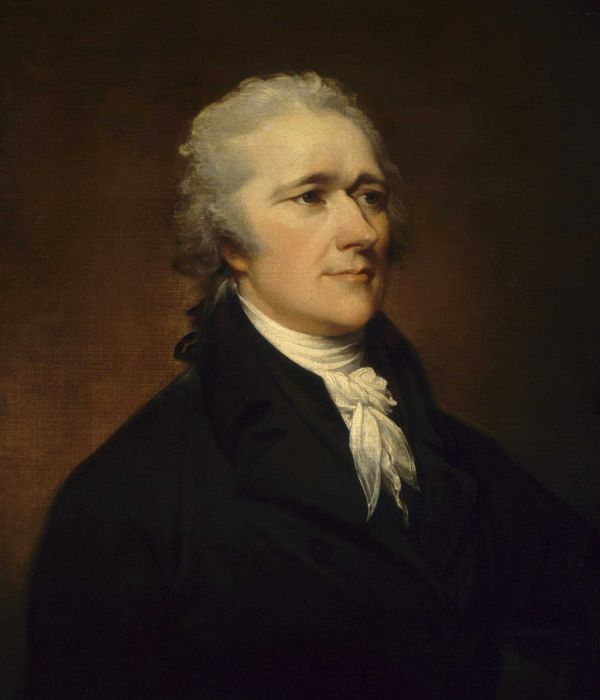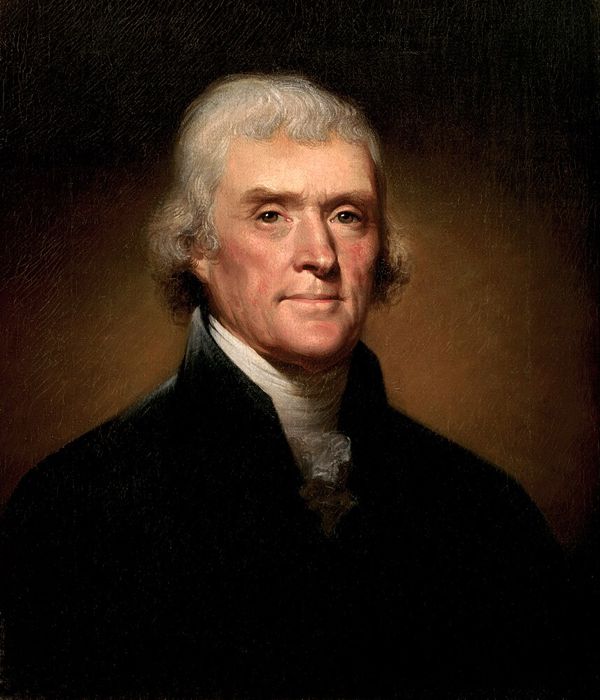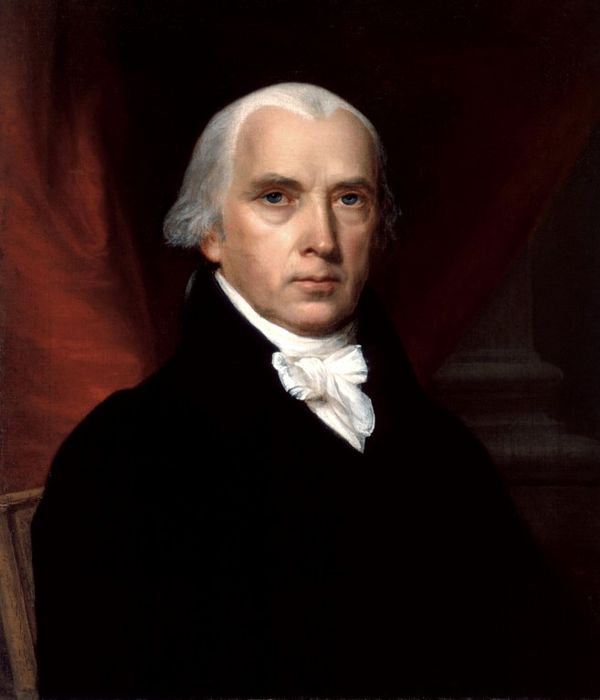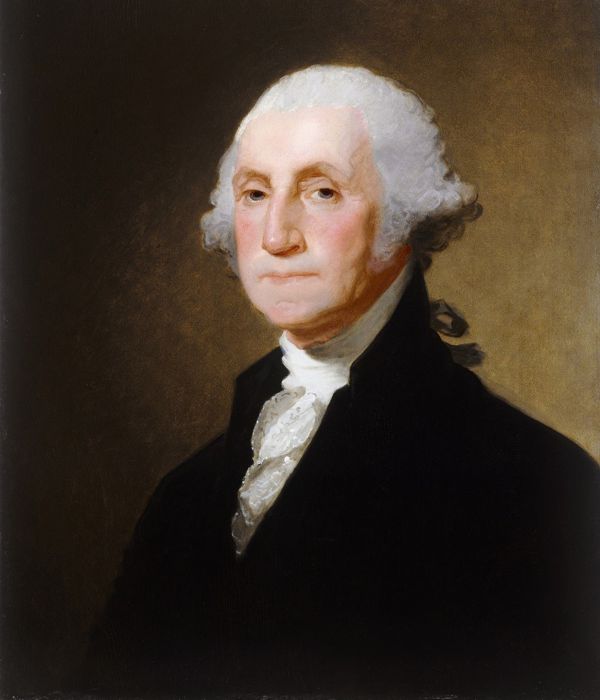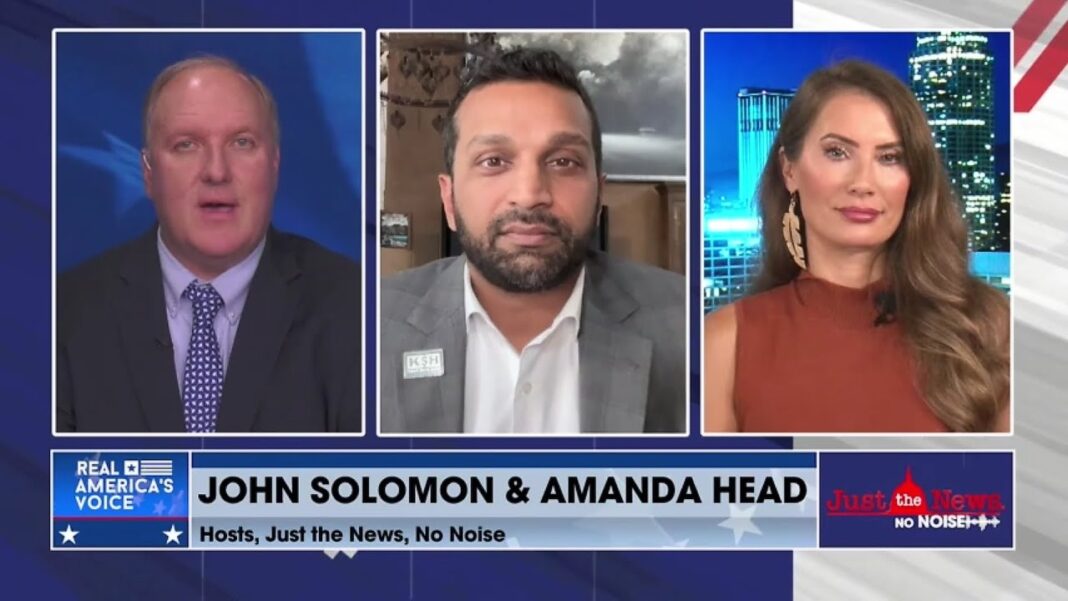When we look at the portraits of the granite-faced Founding Fathers, we wonder if these men ever paused to laugh or smile. Or, were they so preoccupied with the weighty political problems of their time, that they were not remotely capable of having a sense of humor?
Look a little closer. Yes, in the paintings the Founders stand frozen and erect, painfully unsmiling, gazing off into visions of government. Yet looking closely, we can see Jefferson’s eyes are twinkling, and his thin lips are pressed together as if to keep away an unruly smile. Adams looks very statesmanlike, though his mind could just as well be concocting a new joke as a new law. Washington is particularly stiff and rigid, but after reading his writings, we find the painter has fooled us.
Truth be told (as the following collection of quotations will reveal), the men who framed our constitution and forged our nation did have a sense of humor. In fact, they were masters of a sophisticated wit that is nearly extinct today. This is just a sampling.
John Adams
To his wife: “I have accepted a seat in the House of Representatives, and thereby have consented to my own ruin, to your ruin, and to the ruin of our children. I give you this warning that you may prepare your mind for your fate.”
“The appearance of religion on Sunday proves that it is only an appearance.”
“In my many years I have come to a conclusion that one useless man is a shame, two is a law firm, and three or more is a congress.”
“Had I been chosen President again, I am certain I could not have lived another year.”
“Oh! the wisdom, the foresight and the hindsight and the rightsight and the leftsight, the northsight and the southsight, and the eastsight and the westsight that appeared in that august assembly.”
To his wife: “Pray how does your asparagus perform?”
Benjamin Franklin
“In old times it was no disrespect for men and women to be called by their own names. Adam was never called Master Adam; we never read of Noah Esquire, Lot Knight and Baronet, nor the Right Honorable Abraham, Viscount Mesopotamia, Baron of Cannan. No, no, they were plain men, honest country
graziers that took care of their families and their flocks. . . Thou never sawest Madame Rebecca in the Bible, my Lady Rachel, nor Mary. . . . No, plain Rebecca, Rachel, Mary, or the Widow Mary, or the like. It was no incivility then to mention their naked names as expressed.”
“He’s a fool that makes his doctor his heir.”
“There is perhaps no one of our natural passions so hard to subdue as pride. Disguise it, struggle with it, beat it down, stifle it, mortify it as much as one pleases, it is still alive and will every now and then peep out and show itself. . . . Even if I could conceive that I had completely overcome it, I should probably be proud of my humility.”
“He that falls in love with himself will have no rivals.”
“I wish every gentleman and lady in France would only be so obliging as to follow my fashion, comb their own heads as I do mine, dismiss their friseurs [hairdresser], and pay me half the money they paid them.”
Alexander Hamilton
“A well-adjusted person is one who makes the same mistake twice without getting nervous.”
“Such a wife as I want. . . must neither love money nor scolding. . . . As to religion, a moderate stock will satisfy me. She must believe in God and hate a saint.”
“The art of reading is to skip judiciously.”
“Nobody expects to trust his body overmuch after the age of fifty.”
“A garden, you know, is a very useful refuge of a disappointed politician. Accordingly, I have purchased a few acres about nine miles from town, have built a house, and am cultivating a garden.”
Thomas Jefferson
After drafting a document for the Virginia legislature: “I should apologize, perhaps, for the style of this bill. I dislike the verbose and intricate style of the English statutes. . . . You, however, can easily correct this bill to the taste of my brother lawyers by making every other word a ‘said’ or ‘aforesaid’, and saying everything over two or three times, so that nobody but we of the craft can untwist the diction and find out what it means; and that, too, not so plainly.”
“Law is quite overdone. . . The mob of the profession get as little money and less respect than they would by digging the earth.”
“If the present Congress errs in too much talking, how can it be otherwise in a body to which the people send one hundred and fifty lawyers, whose trade it is to question everything, yield nothing, and talk by the hour? That one hundred and fifty lawyers should do business together ought not to be expected.”
When his political opponents agreed with a certain presidential act: “And when I found they approved of it, I confess I began strongly to apprehend I had done wrong, and to exclaim with the Psalmist, ‘Lord, what have I done that the wicked should praise me!’”
James Madison
“The greatest difficulty as in every use of a foreign language, is in selecting the appropriate word or phrase. . . . Hence the mistakes sometimes ludicrous in the use of a foreign language, imperfectly understood; as in the case of the Frenchman, who finding in the dictionary that to pickle meant to preserve, took leave of his friends with a ‘God pickle you.’”
“Had every Athenian citizen been a Socrates, every Athenian assembly would still have been a mob.”
On fashion: “Can any disposition be more cruel than a situation, in which the existence of thousands depends on one will, and that will on the most slight and fickle of all motives, a mere whim of the imagination?”
To a friend studying to become a lawyer: “I greatly commend your determined adherence to probity and truth in the character of a lawyer but fear it would be impracticable.”
“Having outlived so many of my co-temporaries I ought not to forget that I may be thought to have outlived myself.”
George Washington
Farming: “Our . . . tobacco is assailed by every villainous worm that has had an existence since the days of Noah (how unkind it was of Noah, now I have mentioned his name, to suffer such a brood of vermin to get a berth in the ark), but perhaps you may be as well off as we are—that is, have no tobacco for them to eat.”
When, after the surrender of Cornwallis in 1781, Cornwallis proposed a toast “to the king.” This was Washington’s reply: “To the king of England. Confine him there and I’ll drink him a full bumper.”
Congratulating the Marquis de Chastellux on his wedding engagement: “Like the smallpox or the plague, a man can have [matrimonial happiness] only once in his life, because it commonly lasts him (at least with us in America—I don’t know how you manage these matters in France) for his whole lifetime.”
“There is no restraining men’s tongues or pens when charged with a little vanity.”
Bibliography
Azquotes.com, “Alexander Hamilton quotes”, “John Adams quotes”. Accessed 10/20/23.
Allison, Andrew M., Jay A. Parry, and W. Cleon Skousen. The Real George Washington, 3rd ed. National Center for Constitutional Studies, 2010.
Allison, Andrew M., M. Richard Maxfield, K. DeLynn Cook, and W. Cleon Skousen. The Real Thomas Jefferson. National Center for Constitutional Studies, 2010.
Allison, Andrew M., W. Cleon Skousen, and M. Richard Maxfield. The Real Benjamin Franklin. National Center for Constitutional Studies, 2010.
Mattern, David B., ed. James Madison’s “Advice to My Country.” University Press of Virginia, 1997.

